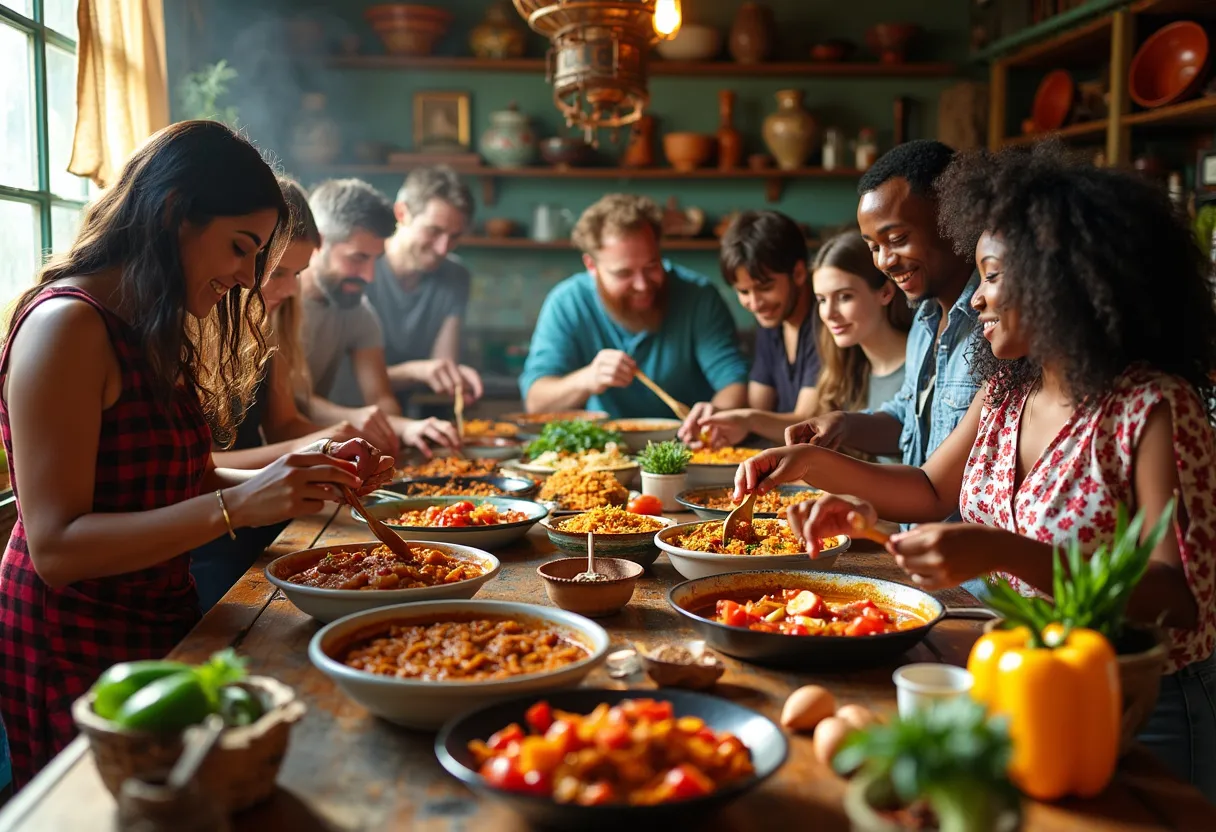
Preserving Culinary Traditions: The Unexpected Rise of Cajun and Creole Cooking Classes
Published on 9/22/2024
Ethan Walker • 9/22/2024
In the bustling city of New Orleans, where jazz melodies float through the air and every street corner has a story to tell, the rich tapestry of Cajun and Creole cuisine is woven into daily life. However, in recent years, there's been a resurgence of interest not just in tasting these age-old dishes, but in learning how to craft them from scratch. Welcome to the fascinating world of Cajun and Creole cooking classes, where age-old recipes are finding a vibrant new audience.
The Cultural Significance of Cajun and Creole Cuisine
Cajun and Creole cuisine has long been a cornerstone of Southern culinary identity. These food traditions, which are steeped in history, speak of a fusion of French, African, Spanish, and Native American influences. Yet, their preservation isn't merely about keeping recipes alive; it's about saving stories, memories, and a way of life cherished by generations.
Understanding the Cajun and Creole Difference
Before diving into the cooking classes, it's crucial to grasp what distinguishes Cajun from Creole. While both share similarities, Cajun cuisine is often described as "country food" birthed from the rural areas by descendants of the French Acadians who settled in Louisiana. It is known for its heartiness and use of simple, rustic ingredients. In contrast, Creole cuisine, often dubbed "city food," was developed in New Orleans and features a more extensive use of tomatoes and varied spices, influenced by the multicultural city-dwelling communities.
The Rise in Cooking Classes
Across kitchens, both big and small, there’s an undeniable passionate resurgence for these classes. But what’s driving this revival? Recent trends suggest a thirst for authenticity in cooking, a deeper connection to cultural roots, and a communal way to gather and share the fruits of labor.
What to Expect in a Cajun and Creole Cooking Class
- Ingredient Exploration: Students will get hands-on experience with staples like andouille sausage, fresh okra, crawfish, and the holy trinity of onion, celery, and bell pepper.
- Culinary Techniques: Participants learn traditional techniques like making a dark roux for gumbo or achieving the perfect blend of spices for a jambalaya.
- History Lessons: Each recipe comes with a rich backdrop of stories – from tales of the bayou to anecdotes from my personal family kitchen, which inevitably enrich the cooking experience.
- Camaraderie: At the heart of these classes is the communal joy of cooking together, a crucial component of the culinary tradition where food often serves as a connector.
The Role of Technology in Culinary Preservation
With the advent of online cooking platforms, sharing these culinary secrets has never been easier. Virtual classes provide a platform for food enthusiasts from around the world to join the vibrant world of Cajun and Creole cuisine. Online formats often include interactive features, such as live Q&A sessions, allowing participants to engage with instructors deeply.
Why This Matters
There's more to these classes than just mastering a recipe. They are about appreciation and respect for the vibrant culture from which these dishes originate. In a world that is continually moving towards instant gratification and fast food, taking the time to understand and create such dishes from scratch serves as a homage to the past.
As an instructor and enthusiast, I see firsthand the transformation in my students—many of whom start with a mere curiosity and leave with a newfound passion. It’s exhilarating to watch another generation learn how to make classic beignets or how to fine-tune the balance of heat and flavor in a pot of jambalaya.
Preserving Cajun and Creole cuisine through cooking classes is a mission that transcends ages. Not just keeping flavors alive, but passing down a legacy that future generations can take pride in. By bringing this culinary artistry into more homes, we’re ensuring that the spirit of New Orleans continues to weave its magic into the future.
Ethan Walker
Senior Chef and Cultural Food Historian | I've been cooking
Ethan was born and raised in the culturally rich city of New Orleans, where food is woven into the fabric of life. His family has passed down Cajun and Creole recipes for generations, and Ethan became passionate about preserving these culinary traditions. After working in various restaurants, he eventually opened his own eatery, which became known for its authentic gumbo, jambalaya, and beignets. Now semi-retired, Ethan teaches cooking classes and writes about the history of Southern cuisine. His mission is to ensure that traditional Cajun and Creole cooking remains vibrant for future generations.